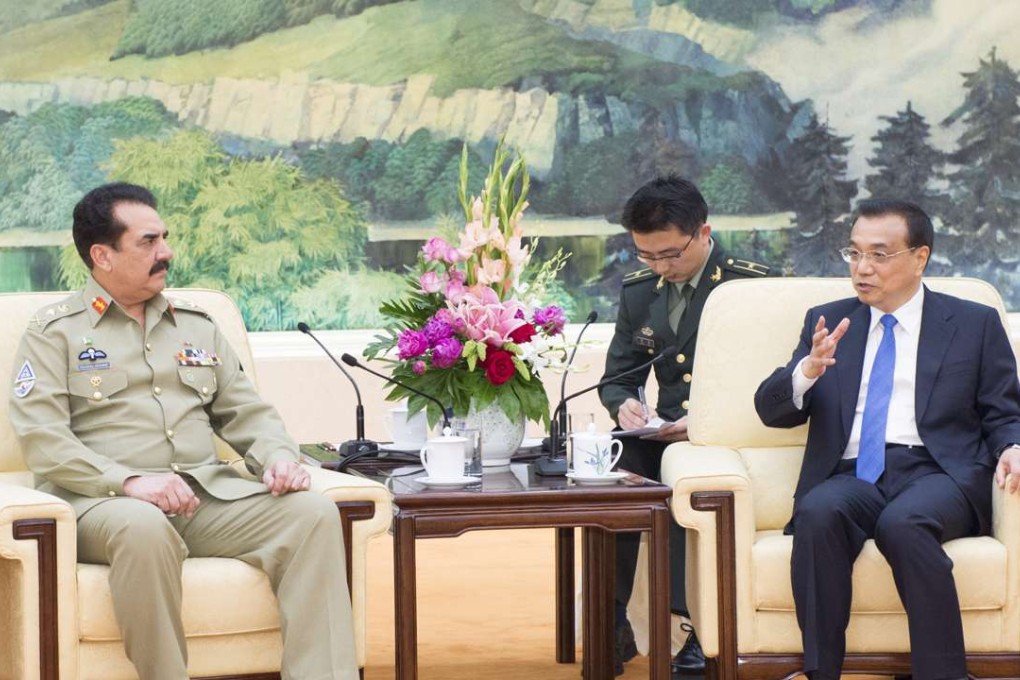Pakistan assures China over safety of joint projects amid fears over deteriorating security

Pakistan’s military has sought to reassure China over the safety of joint investment projects amid growing concerns over the domestic security situation in the South Asian country.
Lt General Asim Saleem Bajwa, Pakistan’s military spokesman, said extra troops would be deployed to guard the flagship China-Pakistan Economic Corridor – a US$46 billion project that includes railways, roads and pipelines that will connect the northwestern part of China and Pakistan’s Arabian Sea coast.
“For all CPEC-related projects, the first responder will be the army itself,” Bajwa said in Beijing yesterday.
Security fears for China-Pakistan corridor as Xi Jinping ends visit
Bajwa was speaking during a two-day visit to China by Pakistan’s army chief, General Raheel Sharif. Sharif has held talks with Premier Li Keqiang, vice-chairman of the Central Military Commission Fan Changlong, and Ground Force Commander General of the PLA Li Zuocheng.
Meeting Li on Monday, Sharif said the Pakistani army took every possible measure to ensure the safety of Chinese engineers working in Pakistan, state-run CCTV reported.
Bajwa said these measures included a force of 15,000 troops, in nine battalions, who were dedicated to providing security for Chinese contractors and corridor projects.
China’s new Silk Road: boom or dust for Pakistan?
In addition, in the restive Balochistan province in the southern reaches of the corridor, local paramilitary forces would help the Pakistani military provide security to the projects and military engineers would carry out construction, he said.